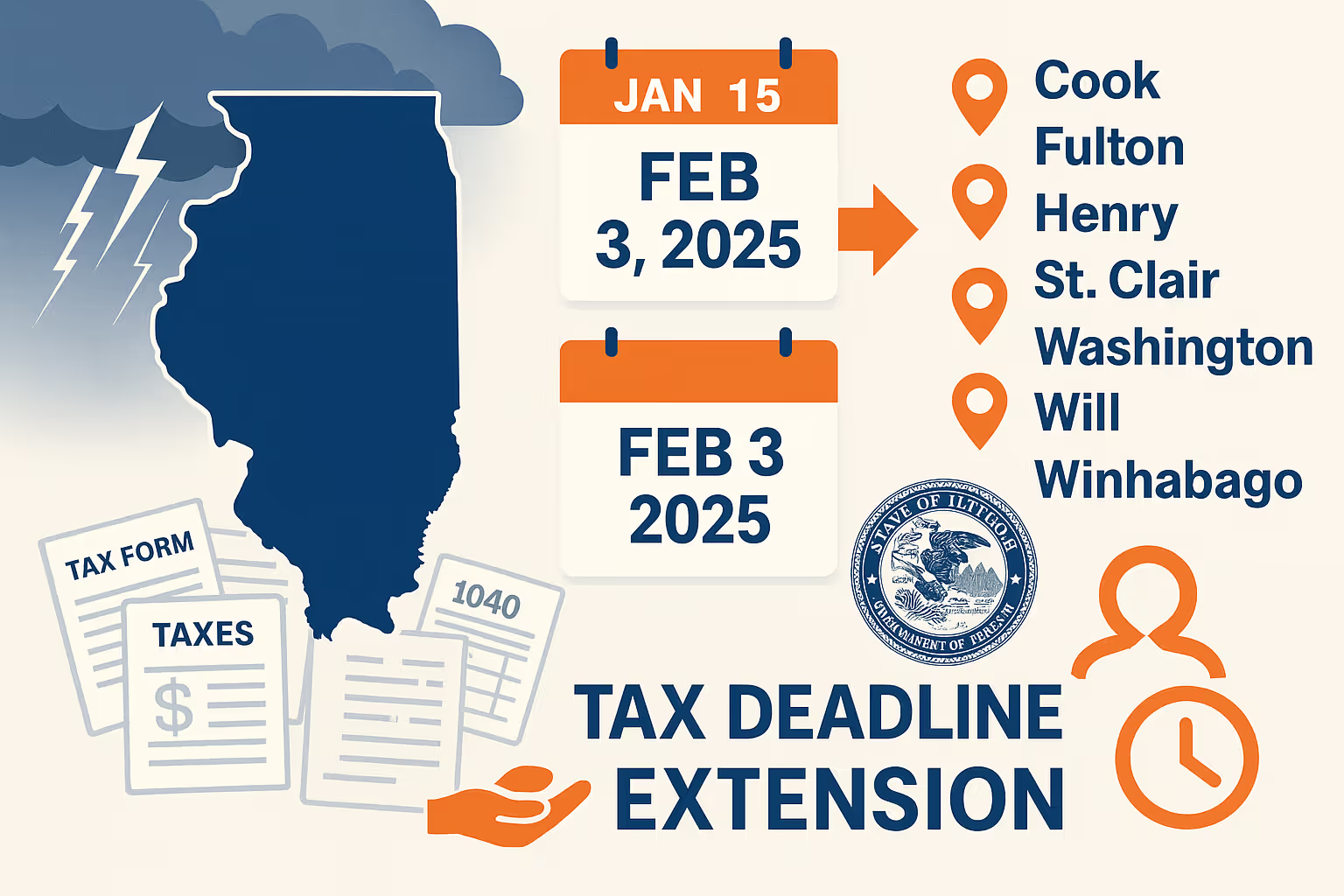Illinois Tax Filing Deadline Extended After Severe Storms



The Illinois Department of Revenue has confirmed that the Illinois tax filing deadline has been extended for residents and businesses in seven counties impacted by July 2024’s severe storms and flooding. The move gives taxpayers additional time to file their income tax return and make required tax payments without facing immediate penalties or interest.
Following federal disaster declarations, the Illinois Department announced that relief applies to certain taxpayers in Cook, Fulton, Henry, St. Clair, Washington, Will, and Winnebago counties.
The extension postpones the state’s filing deadline for all obligations between July 13, 2024, and February 3, 2025. Affected taxpayers will not be subject to late-filing penalties during this period, provided they comply with the updated schedule.
According to the Illinois Department of Revenue, residents and businesses in FEMA-declared counties are automatically allowed this relief—no additional paperwork is required. If more counties are declared disaster areas, they too will become eligible for the same benefits.
The updated rules affect a range of state obligations beyond just income tax.
Any income tax return, tax payments, or tax deposits due within the disaster window are postponed until the extended due date of February 3, 2025. This applies to individuals and businesses, including calendar-year filers.
The relief covers multiple categories, including income tax, excise tax, payroll, and other tax deposits. While the state grants an extension to file, taxpayers must still pay any balances from a prior year to remain compliant.
Even outside of disaster circumstances, Illinois provides options for extending deadlines.
Most calendar year residents are given an automatic six-month extension to complete their income tax return. For 2025, this means an extended due date of October 15 for regular filers. Taxpayers who request an extension to file must pay what they owe in taxes by the original due date to avoid a penalty.
Illinois matches that policy if the IRS grants a federal extension of more than six months. However, this only extends the filing deadline—not the requirement to make timely tax payments or deposits. The Illinois Department clarified that balances from a prior year remain subject to interest and payment rules.
A spokesperson for the Illinois Department of Revenue explained, “This disaster tax relief ensures that taxpayers in affected counties can focus on recovery efforts rather than deadlines. They now have the time to file without additional stress.”
Governor JB Pritzker added, “Families and businesses across Illinois have endured significant hardship this summer. Extending the filing deadline gives certain taxpayers the space to rebuild while meeting their tax obligations fairly.”
By moving the Illinois tax filing deadline to February 3, 2025, the state provides more time to file, helping residents gather records and prepare accurate returns. This is especially important for those whose documents were lost or destroyed during the storms.
While taxpayers receive an extension to file, they must still make required tax payments on gross income, excise tax, or payroll liabilities. Any tax deposits due for a prior year remain enforceable. Taxpayers should confirm their extended due date and settle all balances to avoid penalties and interest.
For the latest guidance on Illinois tax filing changes, taxpayers should consult the state’s official sources:
These pages include updates on which counties are eligible, details about filing deadlines, and clarifications on how to file correctly under disaster relief rules.
By William Mc Lee, Editor-in-Chief & Tax Expert—Get Tax Relief Now